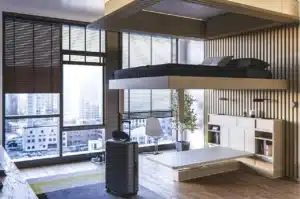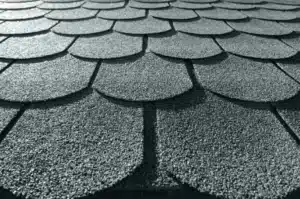Crushed Granite vs. Decomposed Granite Pros and Cons
When it comes to landscaping and hardscaping projects, choosing the right materials can make a significant difference in the overall aesthetics, durability, and maintenance of your outdoor space. Two popular options for pathways, driveways, and other outdoor surfaces are crushed granite and decomposed granite. Crushed vs Decomposed Granite
While they share similar names and are both made from natural granite, they have distinct characteristics and applications. In this comparison, we’ll explore the pros and cons of crushed granite and decomposed granite to help you make an informed decision for your landscaping needs.
Crushed Granite:
Pros:
Durability:
Crushed granite is known for its exceptional durability. It can withstand heavy traffic, making it an excellent choice for driveways and high-traffic pathways. The hardness of crushed granite results in minimal erosion or wear over time.
Stability:
When properly installed, crushed granite provides a stable surface that won’t shift or settle easily. This stability makes it suitable for areas prone to heavy rain or erosion.
Aesthetics:
Crushed granite offers a classic and natural appearance. Its angular, rough texture creates a rustic and appealing look. It comes in various colors, such as gray, black, and pink, allowing for customization to suit your landscaping style.
Low Maintenance:
Once installed, crushed granite requires minimal maintenance. Regular raking or compaction can help maintain its stability, but it doesn’t need sealing, weeding, or reapplication over time.
Eco-Friendly:
Crushed granite is a natural, environmentally friendly material. It’s made by crushing solid granite rocks, which reduces the need for additional manufacturing processes, and it’s easily recyclable.
Cons:
Cost:
Crushed granite can be more expensive than decomposed granite. The cost varies depending on the type and color of granite used.
Limited Versatility:
Its coarse texture makes crushed granite less suitable for finer applications like garden pathways, where a smoother surface may be desired.
Compaction Required:
Proper installation of crushed granite involves compaction to achieve a stable surface. This step can be labor-intensive.
Heat Retention:
Like all stone surfaces, crushed granite can absorb and retain heat, potentially making it uncomfortable to walk on during hot summer days.
Decomposed Granite:
Pros:
Affordability:
Decomposed granite is often more budget-friendly compared to crushed granite, making it an excellent choice for cost-conscious landscaping projects.
Versatility:
This material can be used in various applications, from garden pathways to mulch replacement, and even as a base for pavers or flagstones. Its finer texture allows for a smoother and more decorative finish.
Natural Appearance:
Decomposed granite has a natural, earthy appearance that blends well with garden landscapes and can create a casual, rustic aesthetic.
Easy Installation:
Unlike crushed granite, decomposed granite is easy to spread and level, making it a suitable DIY project for many homeowners. It can be compacted with a plate compactor or hand-tamped for smaller areas.
Permeability:
Decomposed granite is permeable, allowing water to pass through it and reduce runoff, making it a great choice for environmentally conscious landscaping.
Cons:
Durability:
While decomposed granite is relatively durable, it is not as hard or long-lasting as crushed granite. It may wear down more quickly in high-traffic areas and require periodic replenishment.
Maintenance:
Decomposed granite may require more frequent maintenance. It can shift or erode over time, and weeds may grow through it, necessitating occasional weeding and re-leveling.
Limited Load-Bearing Capacity:
It may not be suitable for heavy vehicular traffic like crushed granite, which can lead to rutting and damage to the surface.
Color Variability:
The color of decomposed granite can vary, and it may change over time due to exposure to the elements. This can make it more challenging to achieve a consistent look.
In summary, both crushed granite and decomposed granite have their own set of advantages and disadvantages, and the choice between them largely depends on your specific project needs and budget. Here’s a quick guide to help you decide:
Choose Crushed Granite If:
- You need a highly durable and stable surface, such as for driveways or high-traffic pathways.
- A classic, rugged appearance is preferred in your landscaping.
- Low maintenance is a priority, and you’re willing to invest more upfront.
- Heat retention is not a concern in your climate.
Choose Decomposed Granite If:
- You’re working on a budget and looking for a more cost-effective option.
- Versatility is key, and you want to use it for various landscaping applications.
- A natural, earthy appearance that complements garden aesthetics is desirable.
- You’re comfortable with periodic maintenance and don’t require a heavy load-bearing surface.
Ultimately, the decision between crushed granite and decomposed granite should align with your specific landscaping goals and budget constraints. Both materials have their place in outdoor design and can enhance the beauty and functionality of your outdoor space when chosen wisely.














